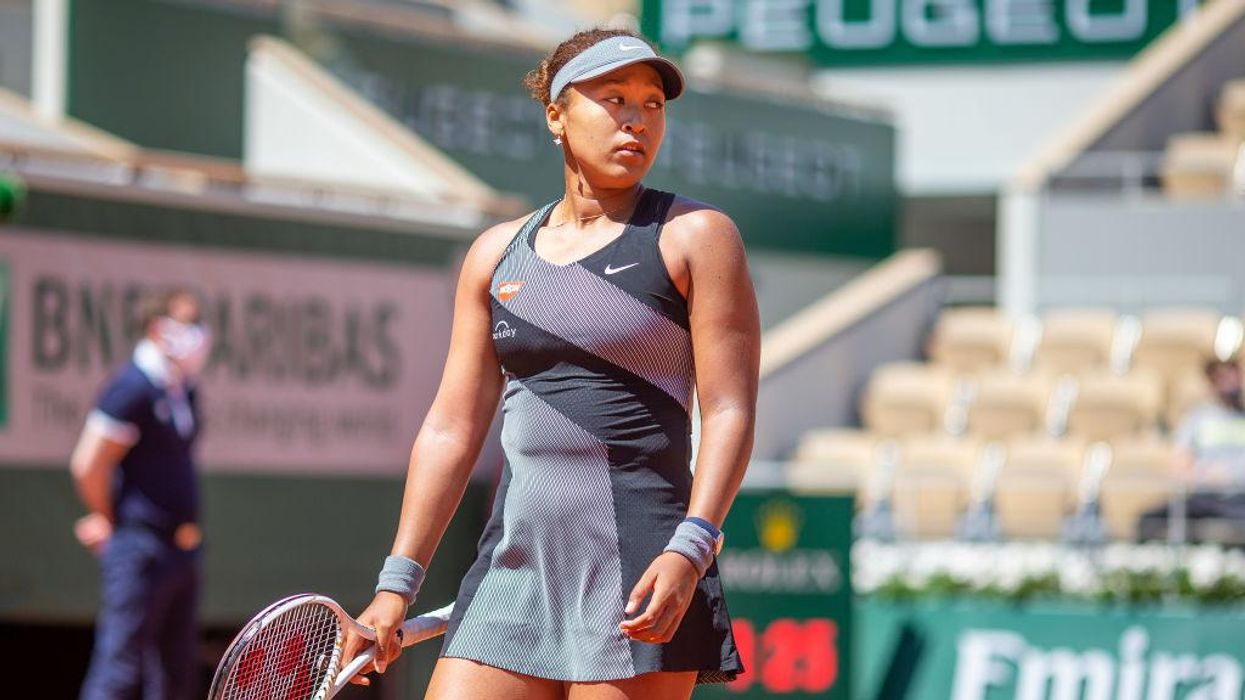
Tim Clayton/Corbis/Getty Images

When last we heard from Naomi Osaka, she was asking for private time to take care of her mental health. People didn't know how shy and introverted she really is, said Osaka, the world's most marketed and endorsed and richest female athlete. She dropped out of two major tennis championships not only for herself, but also for the selfless act of raising awareness of others with mental health issues.
Right? And it turns out that fortunately she was consulting with Dr. LeBron James and his friend and adviser, Dr. Maverick Carter, all along. They were there for her privacy with cameras rolling. James and Carter are the executive producers, we now find out thanks to a tweet from James, of a documentary about Osaka. It will be released July 16, the same day as "Space Jam: A New Legacy,'' where we'll see James play Robin to Bugs Bunny's Batman.
I'm not making any of this up. I'm trying to figure out the new narrative for Osaka, corporate social justice warrior. She could be, should be, and seems to want to be the most important female athlete in the world, maybe the most important athlete, period.
But she makes it so hard to believe in her. She tries to mix the look-at-me culture of social media with its I'm-here-for-you message. Throw in the heavy corporate packaging of her endorsers, and it takes away all sense of genuineness.
The same can be said for James. But this is about Osaka, and she is being handled so poorly, so recklessly, so hurtfully, so cynically that it's becoming increasingly difficult to take her seriously.
People are actually hurting. Mental health is an actual issue, not to be hijacked and trivialized by connecting it to a cartoon character or a desire to avoid talking to reporters.
Look, Naomi: Are you here to help people or are you here to sell shoes for Nike? You can't have both as your primary purpose.
If you don't know, Osaka is the best tennis player in the world. She jumped into our consciousness a few years ago by beating Serena Williams at the U.S. Open. She was shy and understated at the time.
It turns out she's even better: a strong and powerful woman. She chooses to stand up, or boycott and protest, for social justice issues. She wore a different mask every day at last year's U.S. Open, with the names written on them of people who had died at the hands of police.
She is a black woman and a Japanese woman, and her social justice stances and win over Williams — mixed with the upcoming Olympics being in Tokyo — made her a worldwide endorsement magnet. Forbes said she received more than $50 million in endorsements last year.
And then in the last week of May, she announced on social media that she would not talk to the press at the French Open — a requirement, as tournaments and sponsors like to have their products talked about around the world. Why? Because reporters ask the same questions over and over and it's hard on her mental health.
She never mentioned anything to the tour or to French Open officials. She never said, "Look, I have a problem talking with reporters. Can you help me?'' No, she announced on social media:
"If the organizations think they can just keep saying, `Do press or you're going to be fined,' and continue to ignore the mental health of athletes that are the centerpiece of their cooperation then I just gotta laugh.''
The tournament fined her. The leaders of tennis' majors got together and announced that if she continued with this, she could be kicked out.
And then she dropped out of the French Open and announced that she suffers from depression. After that, she withdrew from Wimbledon but said she'd compete in the Olympics. (Her endorsers have built her up there for years.) She will talk to the media there, too. And also, she said, she's on the cover of Vogue Japan.
It is just all so confusing. And if she really is in this to help others with mental health struggles, then good for her. God bless her, in fact. But that message gets lost when her actions contradict her words, while at the same time appease her corporate backers.
So it seems that her actions were more about an entitled athlete who doesn't want to talk to reporters because she and her handlers want complete control of her image. That's why you see athletes — Michael Jordan, Tom Brady, Derek Jeter, and now Osaka — making their own docuseries.
That's not social justice.
Look, I am a college tennis coach and I deal with young athletes every day. I do not take this lightly, though I was criticized by a Twitter mob when I wrote about it in the past few weeks. I spent the summer of 2020 trying to help preserve the mental health of my athletes. Get out into the sunshine, exercise for a few minutes, go for a walk or bike ride, do yoga for half an hour.
If Osaka is there for them, then I'm all for Osaka. She is in a great position to be just that meaningful.
But social justice has to come from the heart, not from corporate handlers trying to make themselves look good. Mental health or "Space Jam." The separation has to be clear.